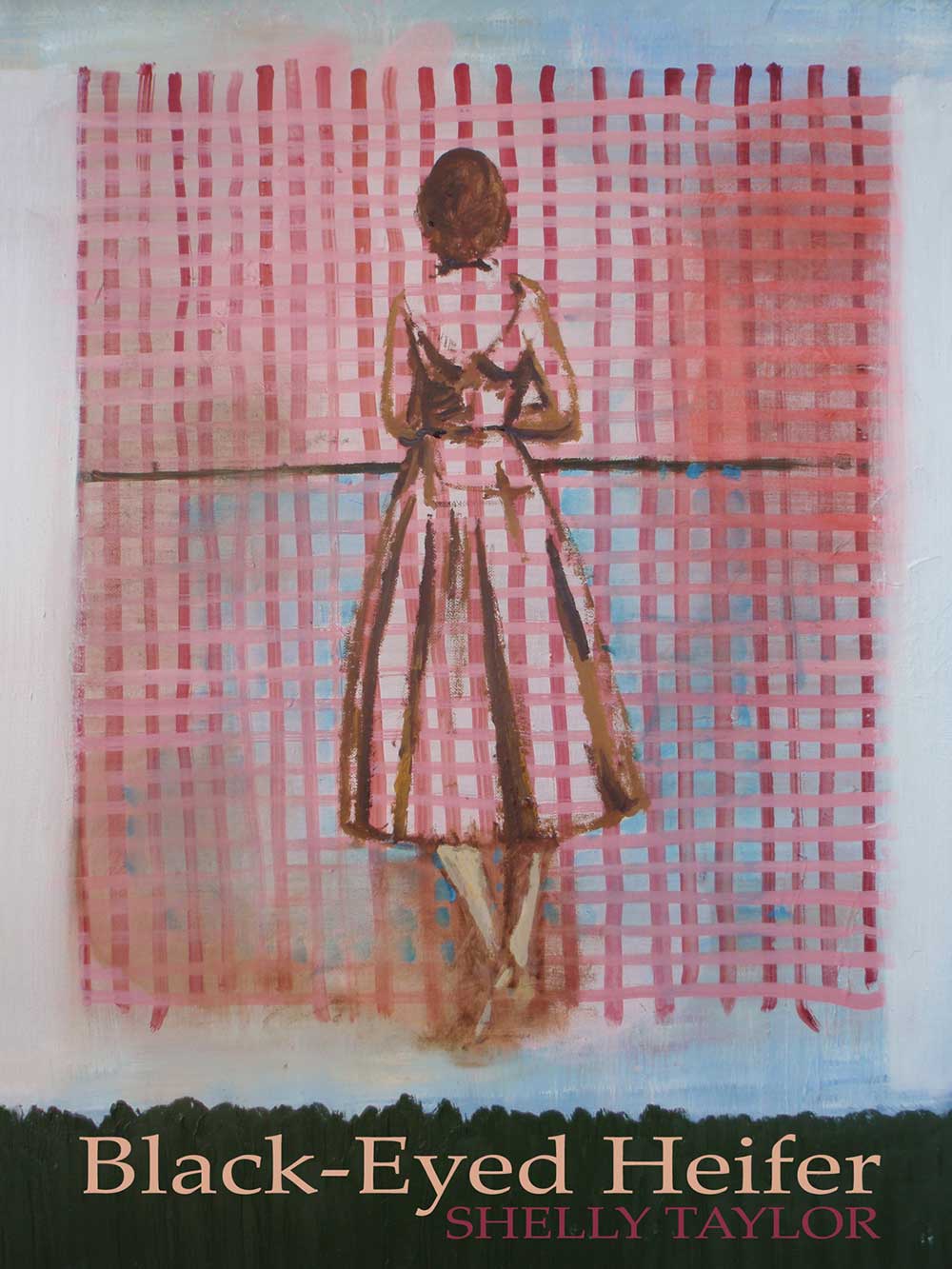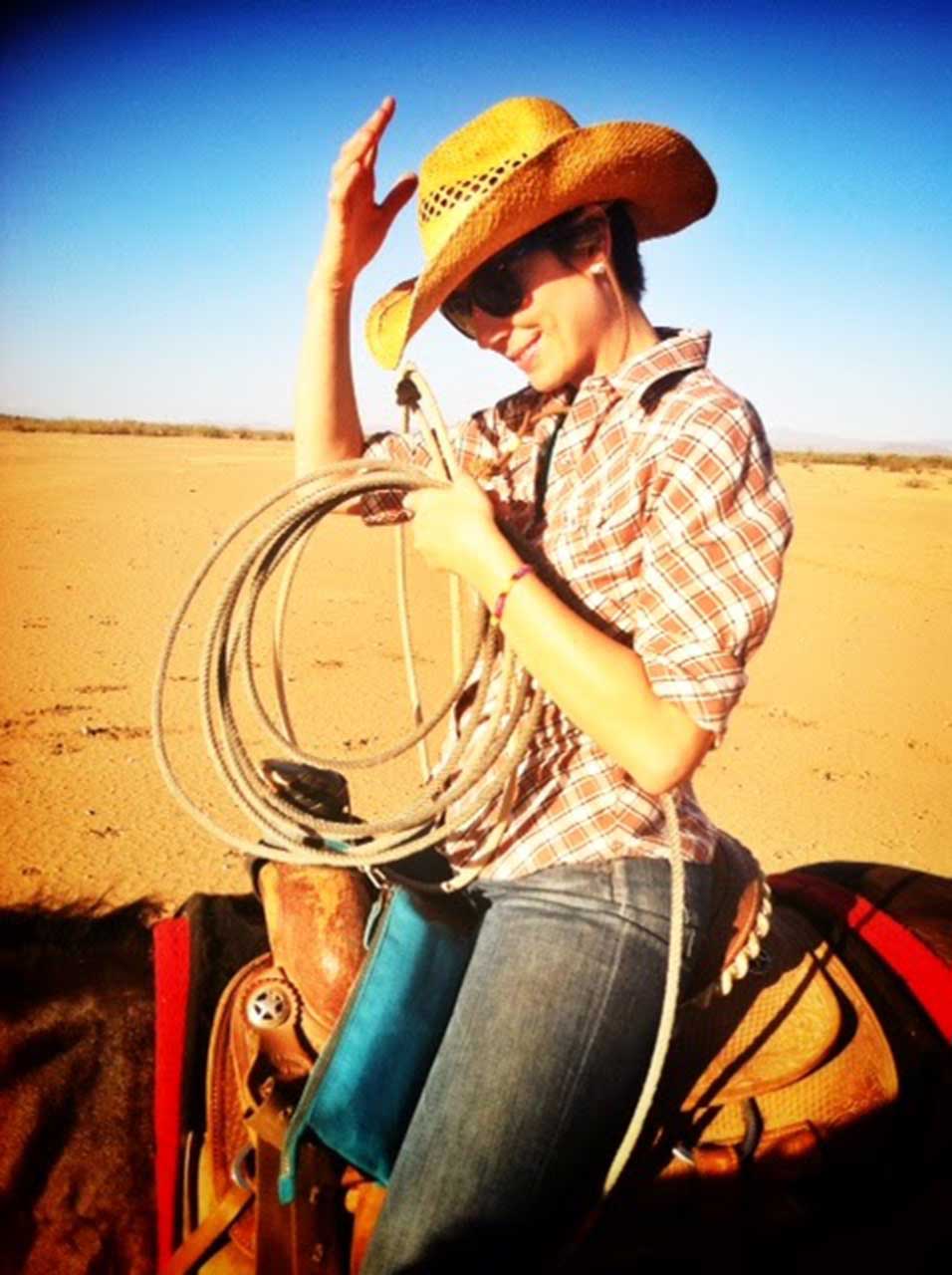
Black-Eyed Heifer
by Shelly Taylor
Lyric Prose. 88 pages. Paperback. 2010
Cover art by Noah Saterstrom

Black-Eyed Heifer
by Shelly Taylor
Lyric Prose. 88 pages. Paperback. 2010
Cover art by Noah Saterstrom
A mosaic of form and language, childhood and adulthood, the American South, horses, gravel roads, and light. It is a riptide pulling its readers out into the deep, powerful currents of nostalgia. It is unrelenting. (Dane Hamann, TriQuarterly) Black-Eyed Heifer is a mighty anthem to down home local culture ‘the deeply rooted’ the feisty, sustaining rhythm that saturates the land. These lyrical prose poems sing a ‘rampant fire’ tune ‘to yesterday’s hands-up hinterland’ and the fact that ‘there were horses, there always are.’ There is abundant vitality and wide-eyed beauty in Shelly Taylor’s contemporary Georgian eclogues, ‘all the while mindful of the color turn’ and ‘silent footwork & news.’” (Brenda Iijima) Shelly Taylor’s first collection Black-Eyed Heifer inhabits the possibilities of language, indigenous in its diction, but radically unfamiliar in its jagged syntax and extended lines. This is neither an experimental or pastoral poetry, but a fusion of speech and intellect that reflect a poet who is deeply rooted in the earth, its dirt and concrete, its horses and cats, but speaks in a rhythm that explodes into space, taps into the pacing of a 21st century phantasmagoric, recollected, American landscape and self. If you made Robert Creeley write lines the length of Frank Stanford’s The Battlefield Where The Moon says I love you, gave them both the sensibility and precise diction of a contemporary Emily Dickinson riding on a horse fast enough to get from Athens to Brooklyn in 10 minutes, then you’d get something like Taylor’s poems. The pacing is high octane, pyrotechnic, but the discursive function of the content is old school, familiar, and impressively defiant. (Jake Levine, Sonora Review) The prose poems of Shelly Taylor’s first collection create stories that poke through your eye & go straight through your head. Ms. Taylor makes up words in “holler time,” language you haven’t heard before but know, right away, to be urgent. I can tell you that she “put me ripened there,” into a three-dimensional South of horses, fields, and characters. Her poems are hell-bent, mad-cap adventures whose diction & syntax defy category. (Jane Miller) There’s a fine density and intensity to this work, the “thinginess” that informs our actual lives, and a radically innovative use of language. I kept thinking of the alabaster bear and petrified whale vertebrae on our mantle, these fabulous memories of life. (Jim Harrison) Reminiscent of Tony Tost’s Invisible Bride, Taylor’s poems evoke the quotidian without becoming banal, carrying the reader through dreamlike forests and fields. . . . Whether eclogue, pastoral, or idyll, Shelly Taylor’s poems turn her audience’s attention to a new poetics of place and carve out a marvelously hybridized space in contemporary American poetry. (Eric Weinstein, Prick of the Spindle)
A mosaic of form and language, childhood and adulthood, the American South, horses, gravel roads, and light. It is a riptide pulling its readers out into the deep, powerful currents of nostalgia. It is unrelenting. (Dane Hamann, TriQuarterly) Black-Eyed Heifer is a mighty anthem to down home local culture ‘the deeply rooted’ the feisty, sustaining rhythm that saturates the land. These lyrical prose poems sing a ‘rampant fire’ tune ‘to yesterday’s hands-up hinterland’ and the fact that ‘there were horses, there always are.’ There is abundant vitality and wide-eyed beauty in Shelly Taylor’s contemporary Georgian eclogues, ‘all the while mindful of the color turn’ and ‘silent footwork & news.’” (Brenda Iijima) Shelly Taylor’s first collection Black-Eyed Heifer inhabits the possibilities of language, indigenous in its diction, but radically unfamiliar in its jagged syntax and extended lines. This is neither an experimental or pastoral poetry, but a fusion of speech and intellect that reflect a poet who is deeply rooted in the earth, its dirt and concrete, its horses and cats, but speaks in a rhythm that explodes into space, taps into the pacing of a 21st century phantasmagoric, recollected, American landscape and self. If you made Robert Creeley write lines the length of Frank Stanford’s The Battlefield Where The Moon says I love you, gave them both the sensibility and precise diction of a contemporary Emily Dickinson riding on a horse fast enough to get from Athens to Brooklyn in 10 minutes, then you’d get something like Taylor’s poems. The pacing is high octane, pyrotechnic, but the discursive function of the content is old school, familiar, and impressively defiant. (Jake Levine, Sonora Review) The prose poems of Shelly Taylor’s first collection create stories that poke through your eye & go straight through your head. Ms. Taylor makes up words in “holler time,” language you haven’t heard before but know, right away, to be urgent. I can tell you that she “put me ripened there,” into a three-dimensional South of horses, fields, and characters. Her poems are hell-bent, mad-cap adventures whose diction & syntax defy category. (Jane Miller) There’s a fine density and intensity to this work, the “thinginess” that informs our actual lives, and a radically innovative use of language. I kept thinking of the alabaster bear and petrified whale vertebrae on our mantle, these fabulous memories of life. (Jim Harrison) Reminiscent of Tony Tost’s Invisible Bride, Taylor’s poems evoke the quotidian without becoming banal, carrying the reader through dreamlike forests and fields. . . . Whether eclogue, pastoral, or idyll, Shelly Taylor’s poems turn her audience’s attention to a new poetics of place and carve out a marvelously hybridized space in contemporary American poetry. (Eric Weinstein, Prick of the Spindle)
About the Author
Shelly Taylor is the author of two full-length collections, Black-Eyed Heifer (Tarpaulin Sky, 2010) and Lions, Remonstrance (Elizabeth P. Braddock Book Prize, Coconut Books, 2014). She also has published three chapbooks: Peaches the Yes-Girl (Portable Press at YoYo Labs, 2008), Land Wide to Get a Hold Lost In (Dancing Girl, 2009), and Dirt City Lions (HorseLess, 2012). Taylor co-edited, with poet Abraham Smith, an anthology of rural American poetry and essays, Hick Poetics (Lost Roads, 2015). “B-Side Girls”, a third full-length manuscript, was recently listed as a finalist for the Ahsahta Sawtooth Book Prize. Taylor’s poetry was included in Guernica magazine’s special issue, “The Future of Language”. She lives in southern Georgia and is a teacher and a barrel racer.


About the Author
Shelly Taylor is the author of two full-length collections, Black-Eyed Heifer (Tarpaulin Sky, 2010) and Lions, Remonstrance (Elizabeth P. Braddock Book Prize, Coconut Books, 2014). She also has published three chapbooks: Peaches the Yes-Girl (Portable Press at YoYo Labs, 2008), Land Wide to Get a Hold Lost In (Dancing Girl, 2009), and Dirt City Lions (HorseLess, 2012). Taylor co-edited, with poet Abraham Smith, an anthology of rural American poetry and essays, Hick Poetics (Lost Roads, 2015). “B-Side Girls”, a third full-length manuscript, was recently listed as a finalist for the Ahsahta Sawtooth Book Prize. Taylor’s poetry was included in Guernica magazine’s special issue, “The Future of Language”. She lives in southern Georgia and is a teacher and a barrel racer.